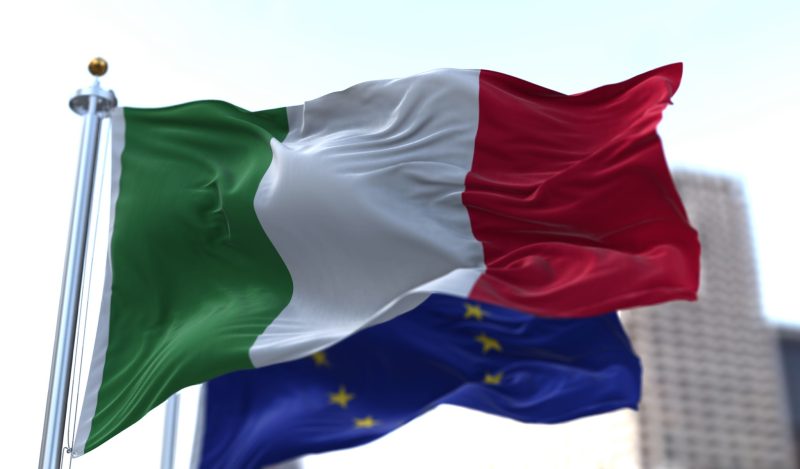

There has been much talk of a “far-right surge” in the European Parliament. For example, BBC ran a headline, “Far right eyes Europe vote surge…,” shortly before the elections. On June 5th, Politico reported, “As the far right surges, this week’s European Parliament election will reorder the Continent’s political landscape.” One of CNN’s post-election headlines ran, “Far right surges in European Parliament elections but center still holds.” These sorts of headlines may make for exciting reading, but they reveal a profound lack of understanding of what is really going on politically in Europe.
First, while you will always find pockets of far-right thinking in Europe’s political system, the notion that new and emerging political parties on the right are generally “far-right” is simply false. For example, if you go to the webpage of one of the major emerging political groups that is supposed to be part of the “far-right surge,” the European Conservatives and Reformists, you are greeted not by neo-Nazi slogans, but by commitments to “safeguarding citizens and borders,” “respecting the rights and sovereignty of member States,” “protecting the global environment at a cost we can afford,” “improving the union’s efficiency and effectiveness,” and “cooperating with global partners.”
If you peruse the website of the Brothers of Italy (Fratelli d’Italia), the political party associated with the supposedly “far-right” Italian Prime Minister Giorgia Meloni, in search of reactionary and extremist ideas, you will be deeply disappointed. The website displays a fairly humdrum list of policies to promote economic growth, a safer Europe, a better health system, policies to support families and boost the birth rate, opposition to bio-surveillance (“green pass”), and the need to combat illegal immigration.
Here, for example, is a translation of one paragraph from the Brothers of Italy’s European electoral platform, concerning immigration:
It must be Europe that decides who enters its territory and not criminal organizations or external actors interested in using migratory flows as a weapon to destabilize governments. Immigration must be framed within a context of legality and addressed in a structural manner. Saving lives is a duty, as is protecting those entitled to asylum, but the model favored by the left—characterized by indiscriminate acceptance and never-implemented redistributions (of migrants)—has proven to be a failure.
Anyone who describes these sorts of policies as “far-right” is either deeply deluded or simply determined to discredit their political adversaries by any means available. Yet this sort of lazy, dishonest, and demonising treatment of the new right in Europe, which mostly ignores the actual electoral platforms of new-right parties, is now standard fare in mainstream Western media.
The term “far-right” should be reserved for political groups that oppose constitutionalism, are rabidly racist, or want to institute an authoritarian State akin to fascist Italy or Nazi Germany. But instead, the term has degenerated into a cheap label used to discredit political conservatives.
This label is being attached willy-nilly to people who take political positions that are not in vogue among those who self-identify as “Woke” and/or “progressive,” even if these same positions were considered fairly conventional a couple of decades ago: People are labelled “far-right” if they defend the idea of a national identity, want an orderly immigration process, advocate for laws that are tough on crime, believe in traditional marriage and biological markers for gender; or believe that civil rights like informed consent are still relevant during a pandemic.
If you really want to understand why new parties are emerging on the right, throwing around the “far-right” label will not get you very far. What is really happening is that the traditional right-wing parties, many of which are represented by Europe’s largest political group, the European People’s Party, have jumped ship on a lot of traditional right-wing commitments, creating a vacuum to be filled by the “new right.”
For example, rule of law and limited government have been replaced, under the watch of mainstream “right-wing” parties, with vaccine passports, lockdowns, intrusive hate speech laws, crippling “green” taxes and regulations, and the Orwellian idea that we should clamp down on “disinformation,” lest citizens be exposed to “dangerous” ideas.
The old right has overseen a Europe of uncontrolled and disorderly immigration, with no proper vetting of migrants and little consideration for the impact of large-scale migration on local communities. And the old commitment to the right to law and order has given way to a palpable complacency and inaction in the face of a growing crime problem in Europe’s cities.
This has created a pent-up political demand for parties prepared to avow traditional right-wing commitments, such as law and order, orderly immigration, freedom of speech, pro-family taxation and welfare policies, and limited government.
In some cases, this political vacuum has been filled with egregiously xenophobic, racist, and authoritarian rhetoric. But in many other cases, parties dismissed as “far-right” are simply questioning the wisdom of open border policies, exposing abuses of the refugee system, defending free speech, and trying to moderate the green agenda so that it is not so oppressive for farmers and ordinary citizens.
If having serious concerns about immigration and being opposed to far-reaching environmental regulations is considered “extreme,” then it appears that being “extreme” is now pretty normal in Europe: one recent opinion poll shows that immigration is one of the leading concerns for European voters, after the economy and war. In addition, the abysmal performance of the Greens in these EU elections—dropping from 71 to 53 seats—suggests that the Greens’ enthusiasm for ambitious climate regulations is not shared by many voters.
In short, two of the central concerns of the new right—uncontrolled immigration and excessively burdensome environmental regulations—are actually shared by a sizeable number of European voters.
Finally, there was no “surge” to speak of among the new and emerging parties on the right: more like a moderate consolidation.
The new right in Europe is still significantly outnumbered in the EU Parliament by centrists and leftists. For example, the European Conservatives and Reformist and Identity and Democracy groups, which are the most organized sections of the new right, grew from 118 to 131 seats in a 720-member parliament. The European People’s Party, with 189 MEPs, has enough allies on the left to continue to maintain a commanding presence in the parliament.
The rise of alternative-right parties in these EU elections is thus vastly overstated. Nonetheless, the steady consolidation of the new right, combined with the decisive triumph of Marine Le Pen’s Rassemblement National over Macron’s Renaissance party in these elections, shows that there is a growing appetite among European voters for candidates and parties that make stricter border controls and scaling back environmental regulations a major part of their electoral platforms.
This does not fundamentally upend the balance of power in the European Parliament. However, it does suggest a rightward shift in public sentiment in Europe, and this will inevitably have an impact on the policymaking process. Most notably, we are likely to see “centre-right” parties like the European People’s Party adopting a softer line on the environment, and a harder line on immigration, going forward. Anything else would put their own political future in jeopardy.
Republished from the author’s Substack
Join the conversation:


Published under a Creative Commons Attribution 4.0 International License
For reprints, please set the canonical link back to the original Brownstone Institute Article and Author.









